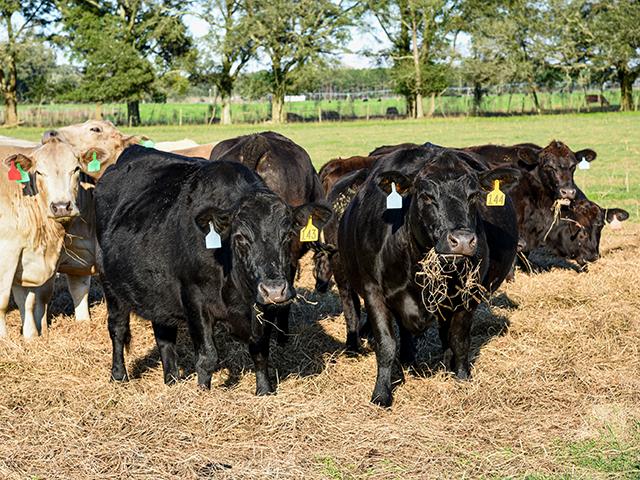Ask the Vet
Feed Quality Critical
READER: Our cows lost more weight this winter than I ever remember. They were on hay and protein tubs like they have always been over the winter. We did change to a cheaper protein tub, but so did my neighbor, and his cows look a lot better than ours. We didn't have a bad winter. I'm wondering what happened and how do I bring their body condition back up?
DR. McMILLAN: I've seen this a lot in 40 years of practice, and there is not one reason or one fix. I can tell you, however, that when cows and bulls lose too much in the way of body condition, fertility rates, weaning weights and overall herd health can cost an operation a lot of money. And, those effects can last for years.
P[L1] D[0x0] M[300x250] OOP[F] ADUNIT[] T[]
In our area last year, we cut a lot of hay, but the overall quality was very poor. If hay is too mature at cutting, quality goes down dramatically. That brings us to the use of protein tubs.
Most protein tubs utilize nonprotein nitrogen (NPN). Microbes in the rumen break down carbohydrates in hay and grass that simple-stomached animals cannot. Most protein tubs contain nonprotein nitrogen and energy sources to feed the microbes, allowing them to break down the carbohydrates more efficiently, which allows cattle to eat more hay or forage, and net more nutrients.
Not all tubs are created equal. Better-quality tubs have more natural protein and energy. Lesser-quality tubs may not have enough energy for poorer-quality hay, and no tub can make up for very poor-quality hay. So, when cows lose weight, start by looking at hay quality. Ideally, each hay cutting or any purchased hay should be tested. If the quality is very poor, tubs may not be the answer. In these cases, a grain- or commodity-type feed may be needed. These can be expensive, but the cost of not providing adequate nutrition will be much greater.
How can you keep from getting in this situation? Body-condition-score (BCS) your cattle, and watch them closely for changes. Cows should be at a BCS of 6 to 7 going into calving season. After calving, they should stay above a 5 BCS. Make sure your pastures and hayfields are in good shape. Soil-test and apply nutrients. Control weeds. Make sure your stocking density is right. Additionally, parasites and weeds take advantage of overgrazed pastures.
**
-- Please contact your veterinarian with questions pertaining to the health of your herd. Every operation is unique, and the information in this column does not pertain to all situations. This is not intended as medical advice but is purely for informational purposes.
-- Write Dr. Ken McMillan at Ask The Vet, 2204 Lakeshore Dr., Suite 415, Birmingham, AL 35209, or email vet@progressivefarmer.com
[PF_0622]
(c) Copyright 2022 DTN, LLC. All rights reserved.




